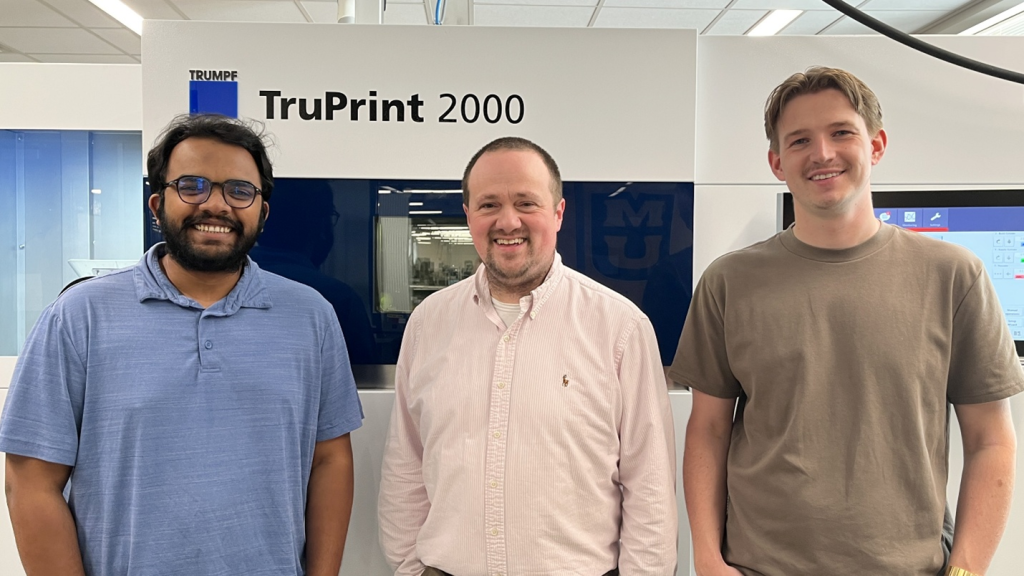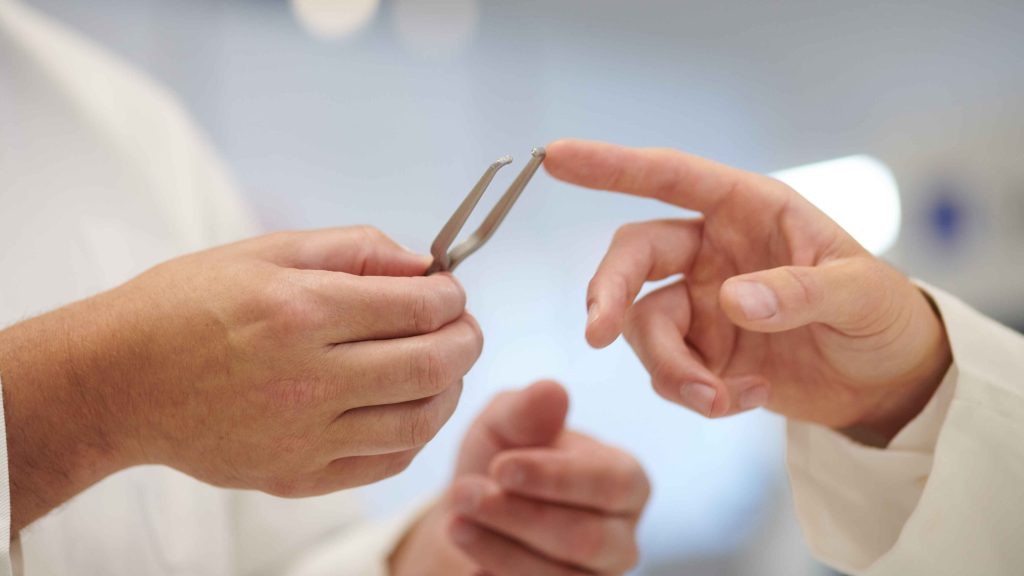October 21, 2025
A significant step forward in advanced manufacturing and material science, the technology will be an asset for campus researchers and local industries.

Mizzou Engineering is home to technologies and opportunities that make us a natural destination for those who have ambitions to create a better world.
A new 3D metals printer in the College will give students hands-on experience with the latest additive manufacturing technology, promote collaborative research across campus, and open opportunities for industry partners.
The Trumpf TruPrint 2000, a laser powder bed fusion system, was designed to help businesses produce complex metal parts efficiently with a high level of detail. It prints objects by using two lasers to melt fine metal powders like stainless steel, titanium, aluminum or others.
The resulting parts are strong, relatively smooth and accurate enough to meet the strict quality standards of the aerospace, automotive or biomedical industries.
The new printer complements the capabilities of the Materials Science and Engineering Institute, where researchers from Mizzou Engineering and the College of Arts and Science work with faculty from NextGen Precision Health to investigate the design and application of high-performing materials.
The TruPrint 2000 enables new, collaborative research across campus, said Scott Thompson, the Glen A. Barton Associate Professor in the Department of Mechanical and Aerospace Engineering.
“Right now we are trying to get the word out to forge new collaborations. We aim to work with several research groups, including those from the College of Veterinary Medicine and the Department of Physics and Astronomy,” he said. “It’s a university-wide effort.”
Thompson is currently working with researchers at the University of Missouri Research Reactor to understand how nuclear irradiation affects the strength, microstructure and composition of test specimens produced by the printer.
“There are only about a dozen alloys out of thousands that can be successfully 3D printed for mechanical use. Others may crack or fail,” Thompson said. “So, before we can produce final parts, we need to understand their strength and other properties, especially before and after irradiation.”

Mizzou Engineering will offer surrounding industries opportunities to explore the benefits of additive manufacturing.
“We can help with one-off projects and introduce partners to the capabilities of this technology,” Thompson said. “The goal is to work with everyone from startups to large companies.”
Students can work with the device as part of their capstone projects or in Thompson’s special topics course MAE 4001/7001: Additive Manufacturing of Metals, which will become MAE 4510 next fall. This experience will prepare them for careers with companies that are already using similar systems.
Having in-house additive manufacturing capabilities will give Mizzou Engineering an advantage when it comes to funding opportunities and position the College as a leader both in Missouri and across the globe.
“This technology puts Mizzou Engineering at the forefront of advanced manufacturing and supports the College’s push in material science,” Thompson said. “It’s a significant step forward.”
Does your company want to discover the potential of additive manufacturing? Explore an industry partnership with Mizzou Engineering!